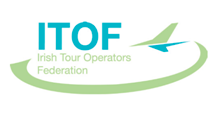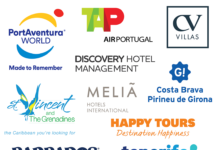In a statement issued last week, Michael Doorley, Managing Director of Shandon Travel, who has been proposed and seconded for the position of Treasurer of the Irish Travel Agents Association and which is to be determined by ITAA members on 14th March, highlighted the serious situation currently faced by the ITAA, both in terms of its raison d’être and its financial stability.

To further the discussion that he called for about the survival of the ITAA, Irish Travel Trade News asked Michael Doorley if he wished to expand on his statement and also asked six people for their comments: Dominic Burke of Travel Centres, Cathie Lewis-Hardy of Travelsavers, Garry Zancanaro of Worldchoice, Philip Airey of the Irish Tour Operators Association, ITAA Board member Clare Dunne, and Pat Dawson, ITAA Chief Executive.
Michael Doorley
After asserting that: “I am not in favour of and would be totally opposed to the ITAA merging with any consortium”, Michael Doorley said in his statement: “The points that I have brought up for discussion are as follows:
* The ITAA is haemorrhaging membership on a yearly basis and if this trend continues there will not be sufficient funds to keep the organisation going.
* Agents are leaving (mainly larger agents who pay more) because they can’t see any value or return for their membership fee. The ‘collective bond’ glue that kept members on board doesn’t have a broad appeal anymore.
* Membership of any of the consortia is justified by the over-ride cheques that members receive for their joining fee. The return is tangible.
* Members pay a membership fee to a consortium, say Worldchoice (of which I am a member) and attend the conference and also the AGM. As a member of the ITAA there is also a membership fee and the cost of attending a conference and AGM. This is a duplication of expense that can ill be afforded in today’s climate and can be done away with if the ITAA becomes the commercial negotiator on behalf of members.
* If the ITAA went down that road then agents who have left the Association may see value in renewing their membership and licensed agents who were not members may see value in joining.
* A bigger membership may lead to reduced fees.
* A bigger membership may put us in a stronger negotiating position.
* From talking to some principals it seems that they would welcome having to negotiate with one body, attend one conference and support one organisation. Presently principals attend and financially support three conferences in addition to the ITAA’s.
* Some principals (in private conversation) have indicated that they could support the new ITAA with marketing funds and still save on the cost of supporting four organisations.
* Consortia were needed at a time when the ITAA couldn’t negotiate commercial deals because of its then dominant position in the industry – and they have served their purpose well. However, the ITAA is no longer in a dominant position as we compete against non-members, tour operators, airlines, bedbanks, ferry/cruise companies, insurance suppliers, and multiple Internet sites. In fact, we are way down the totem pole in terms of our position on the travel chain and if we don’t change radically then the ITAA will cease to exist and the industry will no longer have a voice that is respected and representative of the travel business.
* As a further thought, if we include the Affiliate membership and an increased ITAA membership we would easily end up with a group of 200 organisations, and if we assume an average staff per organisation of, say, five, then we would have potentially a closed group of 1,000 consumers with the potential to negotiate deals for staff, e.g. for communications, nationwide stores, all types of insurances, home goods, and many more. Our staff have all suffered wage cuts, shorter hours, etc. Perhaps this is a way of giving something back without adding costs to agencies.
* Finally, perhaps we need to look beyond an Association that is purely for retail travel agents. Some will contend that we are a dying species. So maybe it is time to broaden our horizons and become the ‘Irish Travel Industry Association’ (ITIA) and have a newly constructed board with representatives from various principals, e.g. tour operators, tourist offices, airports, and others. The devil would be in the detail.
“I hope this starts open, healthy, honest discussion on the way forward for the survival of the ITAA. Established in 1971, it would be a pity to see it cease to exist after so many travel agents have put so much hard work into maintaining the ITAA as the representative body for our industry.”
In response to ITTN’s invitation to comment further, Michael Doorley replied: “I have very little to add to my email at this point in time. My comments were made in an effort to start a debate on how the ITAA should move forward and put itself in a position to survive and what shape it could take in the future. So from now on it is a matter for members, and indeed non members, to make their views known on the future – and then for the board and chief executive to implement any proposals.”
The representatives of the three travel agency consortia responded to ITTN’s request for comment as follows:

Travel Centres
Dominic Burke, Managing Director of Travel Centres, replied: “Following the recent articles that have appeared in several travel publications and Michael Doorley’s subsequent email, in which he set out to highlight a number of factual errors that he claimed were being wrongly attributed to him, I would like to articulate a contrary view, in the interests of open debate on what is a very serious issue – the future survival of the ITAA.
“I, like many other people within the industry, believe that we need a trade representative body like the ITAA that is truly inclusive and whose raison d’être is to champion the cause of the major stakeholders in the industry – and in particular its core constituency of travel agents and tour operators. We trade in an increasingly regulated marketplace and if left unchallenged legislators would simply legislate us all out of business because they don’t understand the nuances of our industry or the iniquities and anomalies that we are faced with on a day-to-day basis.
“One of the challenges that the ITAA surely needs to address, therefore, is why so many agents fail to see the value that such advocacy brings to their respective businesses. This same phenomenon prevails even with consortia such as Travel Centres. The enhanced commercial terms that we negotiate on behalf of our members represent but a small component of the overall suite of services that we provide those members with – and yet it tends to be the yardstick by which our ‘value’ is measured.
“I believe that Michael Doorley is making a quantum leap in logic to presuppose that the only way that the ITAA can extricate itself out of its current conundrum is to ‘monetise’ its business model. Surely the three-fold purpose of any business is to:
- Identify who its clients (or potential clients) are;
- Establish what their needs are; and
- Fulfill those needs.
“Simply trying to reinvent itself as a consortium is not going to solve the ITAA’s problems – and for a number of very good reasons:
- The various consortia that currently fulfill that function already do a pretty good job of it and they are certainly not going to disappear into the sunset without a fight.
- The Competition Authority might have a lot to say about any dominant entity – particularly one with a primarily commercial focus – and the degree to which such an entity could distort competition in the marketplace.
- The lack of joined up thinking in what Michael is proposing is self-evident in the fact that, in his own words, he says that: ‘Consortia were needed at a time when the ITAA couldn’t negotiate commercial deals because of its then dominant position in the industry and they have served their purpose well’, before then going on to suggest that the ITAA attempt to establish itself into such a pre-eminent position again and thus become some sort of monolithic structure to which all roads would lead!
- Contrary to Michael’s claims, any suppliers that have spoken to me about this matter have expressed alarm at the prospect of such a scenario unfolding.
“The fact of the matter is that we are all partners in this industry and what we should really be doing is broadening the discussion so that it is more inclusive. Let the ITAA excel at what it is best at – which is representation at governmental and European/IATA level and securing valuable and much needed funding for ongoing training initiatives, and let the consortia and the various suppliers work in partnership both with each other and the ITAA so that it represents a win-win-win proposition for all concerned.
“For example, I know that the board of the ITAA is currently re-evaluating its fee model. Why couldn’t the ITAA consider offering some form of discounted annual fee to members of consortia, in return for which the respective consortia would be expected to evangelise the ITAA cause among their respective affiliated agents? Such a formula works between suppliers and consortia – why not between the ITAA and consortia?
“Why aren’t the consortia represented on the board of the ITAA itself? As someone who has worked as both a travel agent and tour operator for 37 years and, indeed, who has served on a lot of ITAA committees down through the years, I feel that I have a lot to contribute to the Association in terms of experience, know-how and ideas – and yet I am precluded from being a member of the ITAA because I don’t have a license to trade. I would be happy to pay an annual fee if I thought I would be allowed to contribute.
“Why aren’t more young people involved in the ITAA? We need to get them involved as they represent the future of our industry. Would the ITAA not consider launching an initiative like Junior ITAA – just like there is a Junior Chamber? There are a whole host of things that could be done to rejuvenate the Association.
“The world that surrounds us today is almost unrecognisable to that of just a few short years ago. It has forced all of us to both re-evaluate and re-invent ourselves. The ITAA simply needs to make similar adjustments. Re-inventing itself as a consortium is not the answer: partly because it would be doing it for entirely the wrong reasons; partly because it would not generate the income stream that it thinks it would; but perhaps most importantly of all – because it simply wouldn’t work!
“I am not aware of any national travel agent body anywhere in the world that has chosen to go down the consortium route. ABTA haven’t done it in the UK and ASTA haven’t done it in the United States. Need I say more?”

Travelsavers
Cathie Lewis-Hardy, Vice President, Marketing and Supplier Support, Travelsavers, responded: “While it is unfortunate that the ITAA is facing financial hardship, we are concerned about the impact its survival plans will have on the travel agent community. A successful consortium is about so much more than collecting commissions – it’s about networking, strong supplier relationships, dynamic marketing resources, and access to advanced technology. You can’t build that overnight.
“Travelsavers has been successful for 42 years because our primary focus has always been about being an advocate for our licensed agencies and putting their needs first – that’s why we have developed such a diverse range of tools, resources and services for them.
“If an organisation is honing in on potential commissions in an effort to save itself, then that tells me that its best interest may not be the travel agent community.”

Worldchoice
Garry Zancanaro, of Worldchoice, said: “Worldchoice have no comment at this stage.”

ITOF
Philip Airey, President of the Irish Tour Operators Federation, responded to ITTN’s request for comment with: “It would not be appropriate for ITOF to comment on the affairs of the Irish Travel Agents Association.”
ITAA
Neither ITAA Board member Clare Dunne nor ITAA Chief Executive Pat Dawson made any response.




